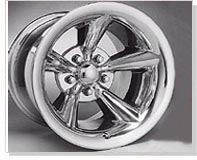
Aluminium or aluminum is a silvery and ductile metal widely used for manufacturing components and parts in diverse industries. The metal is found primarily in bauxite ore and is known for its light weight and resistance to corrosion. Aluminum castings are used in the aerospace industry and very important in other areas of transportation and building.
Properties of Aluminum Alloy Aluminum has a number of properties, which makes it suitable for being casted into unique and complex shapes components and spare parts, which are further used in a number of industries. Some of the properties are:
- Low density : The metal is only one-third the weight of steel.
- Corrosion resistant : Aluminum and its alloys are generally resistant to corrosion, the natural aluminum oxide coating acts as an effective barrier to moisture, air, and various chemicals.
- Good conductor of electricity : This property has made the metal useful for manufacturing various components and spare parts in electrical equipments etc.
- Non combustible and Non Magnetics: These two properties have made the metal invaluable in industries including electronics etc
- Non - Toxic : This property has made aluminium of use in food and packaging industries
- Malleable : This helps the metal for use in common manufacturing and shaping processes . The metal is also ductile and hence can be easily machined and cast
Aluminum Casting Process The metal can be casted using two different methods including:
Sand CastingThis casting technique is generally used for high volume production processes. Different materials are used for creating sand molds, the sand is bonded together by using synthetic compounds or clay and water. These molds are re built after every casting.
- High pressure die casting : The method is suitable for processes that are quite costly and high pressure die casting is the only economic solution
- Low pressure die casting : The method is suitable for producing rotationally symmetrical products such as automobile wheels.
- Gravity die casting : The method is suitable for mass production and also for fully mechanized casting.
- Vacuum die casting : The method was the same principle as that of low pressure die casting and is suitable for manufacturing components that can be heat treated.
Applications of Aluminum Alloy
Aluminum castings are used in diverse industries and fields including:
- Electrical Appliances and Switchgear
- Automobile
- Diesel Engine
- Air Compressor
- Insulator
- Defence
- Railways
- Instruments
- Textile Machinery
- Transportation including aircraft, trucks, railroad cars, marine vessels etc
- Packaging including different types of cans and foil etc.
- Construction Including windows, doors, siding, building wire etc.
- Consumer durable goods including food graded utensils and appliances
Types of Aluminum Alloys
Aluminum Casting
Aluminum is one of the few metal materials, which can be cast by using all the methods of metal casting. Aluminum castings can be made using -
- Die casting
- Permanent mold casting
- Sand casting (green sand and dry sand
- Plaster casting
- Investment casting
- Continuous casting
- Feasibility and cost factors
- Quality factors
Quality is also an important factor to consider while selecting a casting process. In respect to castings, the term quality refers to both the degree of soundness (freedom from porosity, cracking, and surface imperfections) as well as mechanical properties (strength and ductility).
